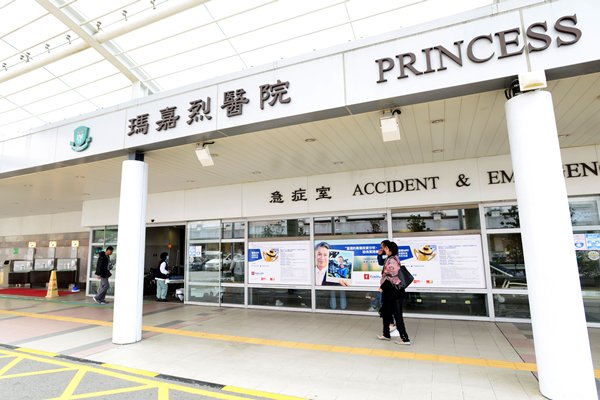Healthcare Spending To Rise 13%

Expenditure on public healthcare services will be increased to $71.2 billion in 2018-19, a rise of 13.3%.
Delivering his Budget Speech today, Financial Secretary Paul Chan said healthcare is an issue of utmost concern to the community.
He said the Government has increased its recurrent expenditure on healthcare by an average of 7% over the past decade.
"The expenditure on public healthcare services will increase by 13.3% to $71.2 billion in 2018-19, accounting for 17.5% of total recurrent expenditure."
A 10-year hospital development plan amounting to $200 billion is also being implemented.
Additional recurrent funding of nearly $6 billion will be allocated to the Hospital Authority to increase the number of hospital beds, operating theatre sessions, the quota for general out-patient and specialist out-patient services and the manpower required.
Mr Chan said the Government will progressively increase the recurrent provision for the authority on a triennium basis, having regard to population growth and demographic changes.
To boost morale and retain staff, the authority will also look into scrapping a policy which freezes the pay of new recruits for their first two years of service.
The administration has also set aside $300 billion as an initial provision to support the second 10-year hospital development plan, improve Department of Health clinic facilities, and upgrade and increase healthcare teaching facilities.
To aid senior citizens, the Government will provide, on a one-off basis, an additional $1,000 worth of Elderly Health Care Vouchers to eligible seniors, which will cost $796 million.
It will regularise the Colorectal Cancer Screening Pilot Programme and progressively extend it to cover people aged 50 to 75. The initiative will cost $940 million over the next five years.
Mr Chan also proposed establishing a $500 million fund to promote the development of Chinese medicine by supporting areas such as applied research, Chinese medicine specialisation, knowledge exchange and cross-market co-operation, and helping local traders with the production and registration of Chinese proprietary medicines.
On the Voluntary Health Insurance Scheme, he suggested offering a tax deduction for people insured under the scheme, capped at a ceiling of $8,000 per person annually.
US Stocks Rise On Hopes Of Pause In Rate Increases
Wall Street stocks finished solidly higher on Thursday, reflecting better sentiment on the US economy and a consensus vi... Read more
China's Financial Risks 'controllable': Regulators
The head of the National Financial Regulatory Administration on Thursday told a high-profile forum in Shanghai that the ... Read more
Banks Cut Yuan Deposit Rates, Could Boost Consumption
China's biggest banks on Thursday said they have lowered interest rates on yuan deposits, in actions that could ease pre... Read more
Cheese And Wine Put EU, Australia Deal In Peril
Australia on Thursday threatened to walk away from a blockbuster free trade deal with the European Union unless its prod... Read more
US Stocks End Mixed As Tech Shares Are Sold Off
Gains by industrial companies lifted the Dow on Wednesday, while weakness among technology shares pushed the Nasdaq deci... Read more
Amazon 'plans Prime Video Streaming Service With Ads'
Amazon.com is planning to launch an advertising-supported tier of its Prime Video streaming service, the Wall Street Jou... Read more

